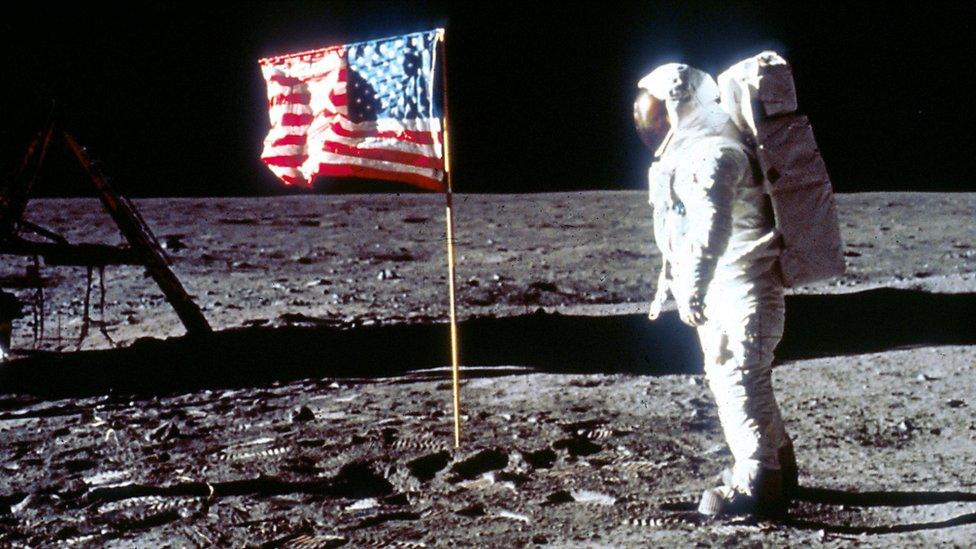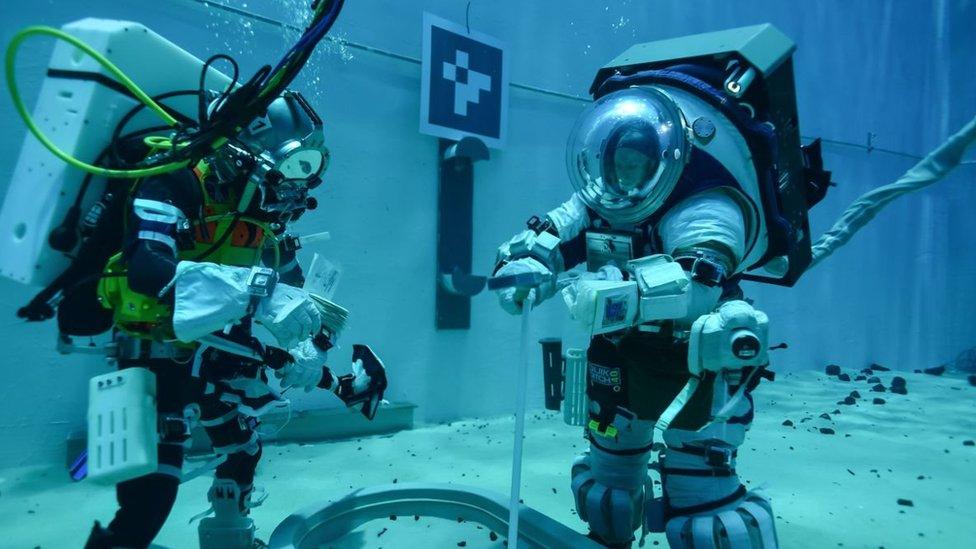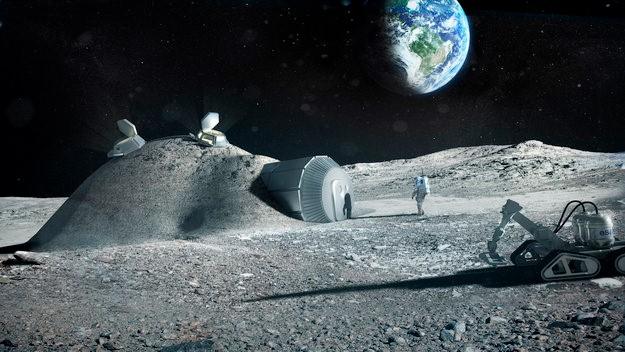Nasa: Could space suits hold up Nasa's Moon landings?
- Published
- comments

There's been a hold-up in the development of the next generation of Nasa space suits that could mess up plans for US astronauts to get to the Moon in 2024.
According to a report from Nasa's Office of Inspector General (OIG), the high-tech spacesuits won't be ready until at least 2025.
The problem is the new suits are a key part of the mission to return to the Moon and could delay the whole thing.
'Given these anticipated delays in spacesuit development, a lunar landing in late 2024, as Nasa currently plans, is not feasible,' the report reads.
The space agency itself hasn't announced any changed to its plans just yet.
What was the original plan?

Donald Trump wanted American astronauts to head back to the Moon
It was President Donald Trump who set the challenge for Nasa to put an American man and the first woman on the surface of the Moon - for the first time in almost 50 years.
Originally set for 2028, the target date was later brought forward to 2024.
President Joe Biden's government followed up by announcing that the mission would also feature the first non-white person to walk on the Moon.

Buzz Aldrin was part of the Apollo 11 crew - the first manned mission to land on the Moon in 1969. Apollo 17 was the final mission of NASA's Apollo program in 1972.
But to do it, Nasa says it needs to upgrade their space suits - known officially as Extravehicular Mobility Units.
The astronauts currently aboard the International Space Station (ISS) are using suits that were designed 45 years ago for the Space Shuttle program.
How much do the suits cost?

These high-tech space suits need A LOT of investment - they will be used on the Moon after all!
Nasa has spent $420 million (about £305 million) on spacesuit development since 2007 (before the Moon mission was even thought up) and, according to the report, plans to 'invest approximately $625.2 million more' before 2025.
Each new suit will be 3D-mapped to an individual astronaut to make them fit as closely as possible and allow for greater movement and flexibility.

There will be two different suits produced - one for wearing during take-off and while in space, and a second to be worn on the lunar surface itself. They'll also be used for missions to Mars.
According to the report, development is approximately 20 months behind schedule.
There are multiple reasons for the delay, including a shortage of funds, technical challenges and the Covid-19 pandemic.
- Published22 October 2019

- Published30 April 2020

- Published4 May 2017

